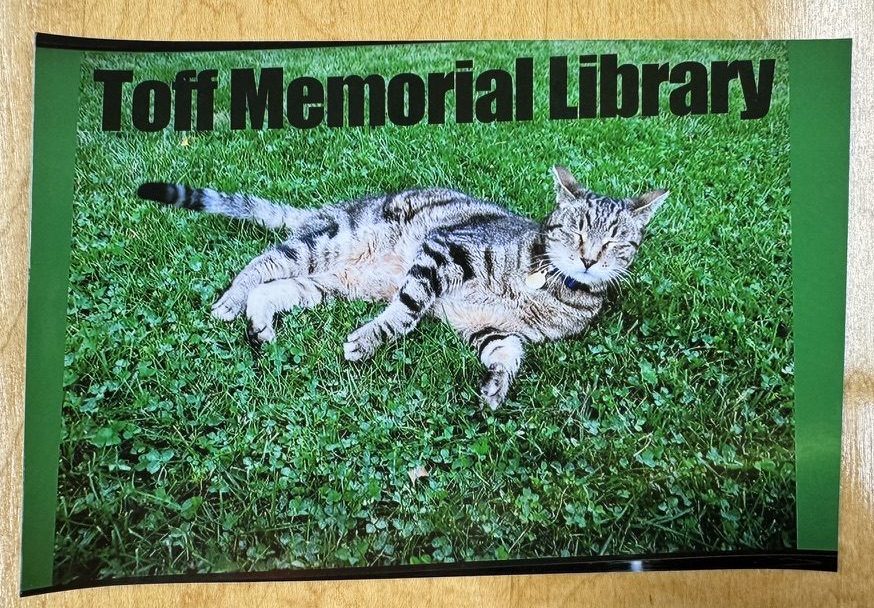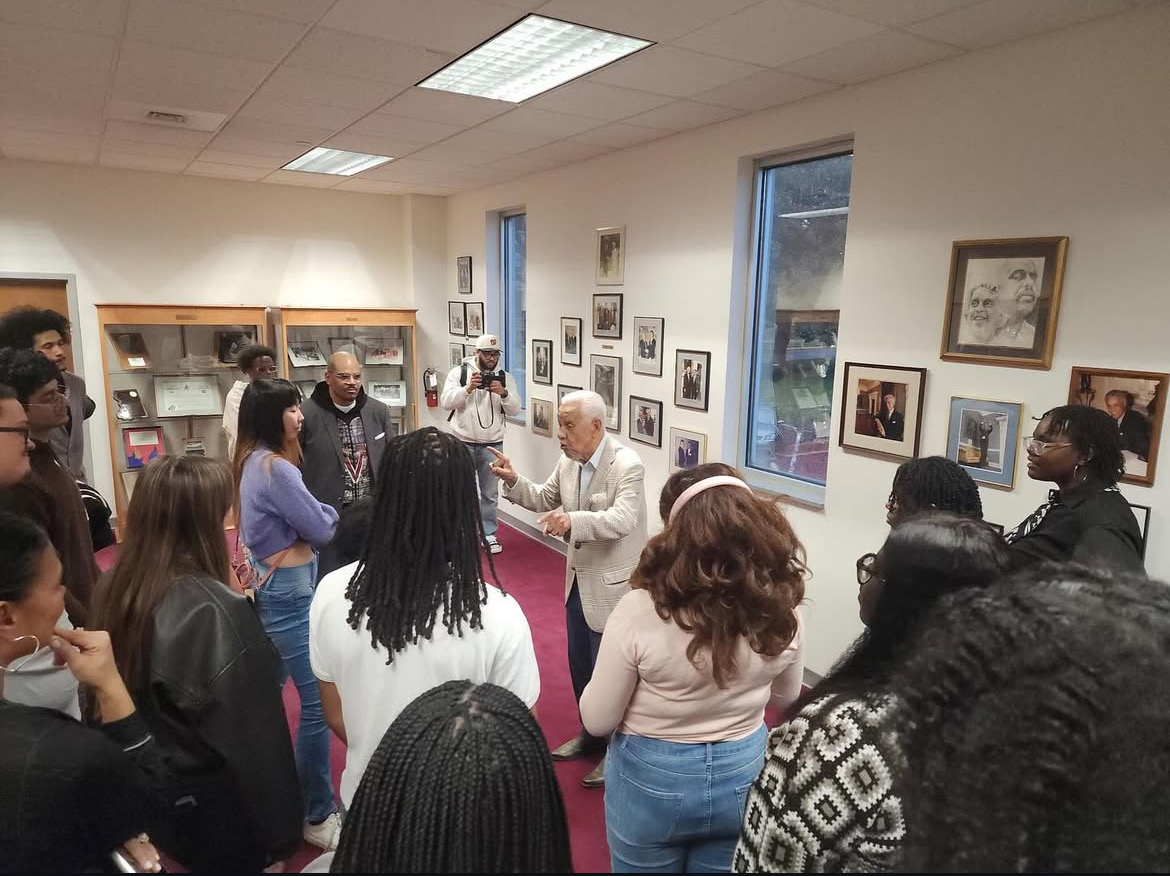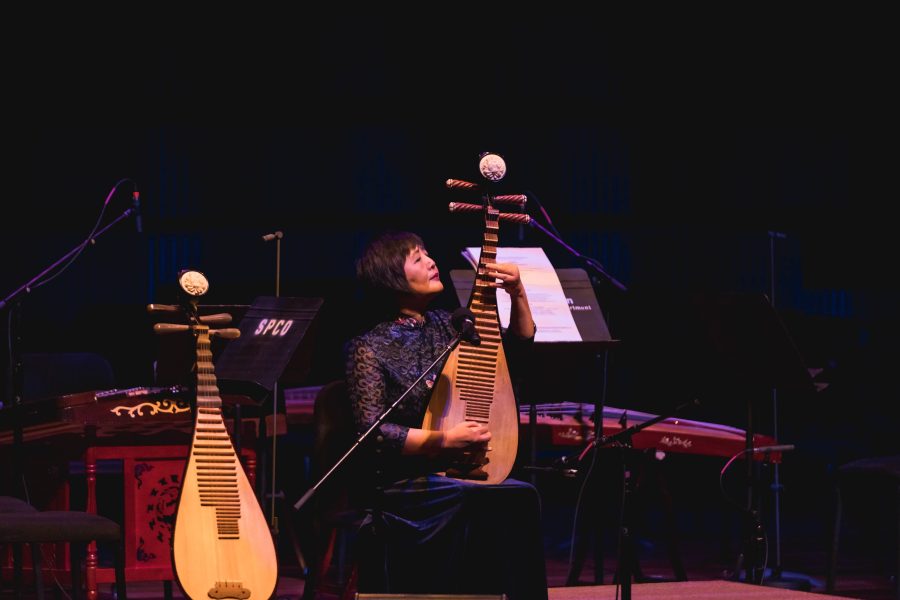Gao Hong is often asked how she began playing the pipa. Most people expect to hear about an exciting moment of realization that the pipa was her calling, or that it came so naturally to her that there could be no other path. But Gao’s journey with the pipa began at the whims of her mother, who insisted she practice the most difficult Chinese instrument for eight hours every day. Gao’s love for the pipa was not immediate; as a child, she loathed the instrument that stole from her hours of play with friends. However, as she grew, so did her love for the instrument. The breadth of sounds it produced, the emotions it evoked and the connections it formed between people and cultures kept her tied to the instrument. She began to play professionally at twelve years old and celebrated her fiftieth year of playing earlier this year at the Ordway Center for the Performing Arts in Saint Paul, Minnesota. To commemorate her achievement, the mayor of Saint Paul, Melvin Carter, established April 3 as Gao Hong Day. The concert was dedicated to her mentor, Lin Shicheng, who would have celebrated his 100th birthday on April 3, 2022.
Gao learned how to play a plethora of other instruments before she picked up her first pipa: the erhu, dizi, guzheng and guqin are all in her repertoire, and she teaches them all here at Carleton. “I grew up during the Cultural Revolution, so my mom wanted me to play an instrument so I could avoid going to the countryside,” Gao explained. She continued, “but pipa was the most difficult, so there would be less competition.” At eight years old, she began to practice the pipa relentlessly, even spending her lunch breaks at school meticulously reviewing over fifty techniques that must be mastered to play the instrument. Just four years later, at age 12, Gao left middle school to tour with professional musicians. A few years had passed, and Gao recounted how she felt at the conclusion of her tour: “I was too old to go back to middle school, but I couldn’t go to high school because I hadn’t learned anything.” Instead of returning to school, Gao enrolled at a pipa pre-college for six years and immediately became a pipa teacher after.
After completing the pre-college program, Gao noted “I was lucky enough to get one of the most famous pipa masters in the world as my teacher.” Their acquaintance happened unexpectedly when Gao was 18 and at a pipa contest with contestants from all over China. Gao was offered a thirty-minute lesson with Lin Shicheng, which she happily took. Gao recalled what happened during the lesson: “Someone came in and said, ‘Wow, your student is so good.’ That prompted him to ask me to show off to his master class, which was full of professors and big stars.” She continued, “We connected right away; after 30 minutes, I became his student.” Gao would become Lin’s only student (besides his son) to tour and record a CD with him.
To Gao, Lin Shicheng was not only an inspiration but also somebody that “treated me almost like a daughter.” After spending some time under his mentorship, Lin asked Gao if she wanted to audition for the Central Conservatory of Music in Beijing, a school of similar rigor to Julliard; each year, only one to two pipa players are accepted. Gao recounted what Lin did next: “He registered me for the audition, paid the registration fee, and told me to go to the audition.” Soon, Gao was a student at the Central Conservatory, something she had never imagined possible. Upon graduation, she moved to Japan to continue her studies. During that time, she went on tour in the United States with plans to return to Japan. But when Gao realized that lots of people didn’t know what the pipa was, “I decided to stay.”
Gao Hong is a master of composing, improvising and, last but not least, teaching. Gao reflected on what led her to the profession: “I had always wanted to be a teacher. In my blood, I love teaching more than anything.” This eventually led her to Carleton, where she began as a staff member, but after playing pipa at convocation and garnering student interest, she began to teach Chinese instrument lessons in 2001. Three years later, she founded the award-winning Chinese Music Ensemble in 2004. Gao has had an immense impact on her students at Carleton and on Carleton’s music program, leading the Chinese Music Ensemble to much acclaim.
Gao’s kindness and passion for music and teaching have not been lost upon her students. Gao has cultivated relationships similarly as impactful as the one between herself and Lin Shicheng. Marianne Gunnarsson ‘22 joined the Chinese Music Ensemble after transferring to Carleton but had never played the erhu before. She learned quickly under Gao’s direction and also found a home on Carleton’s campus. Gunnarsson elaborated, “Gao laoshi has impacted me by demonstrating what it means to be truly gracious and kind to others, no matter how successful you become. She is a beautiful person and has shown me that beauty is not just external but comes from within. She is also important to me because, in addition to teaching me so much music, she has also taught me a lot of Chinese.”
Silas Zhao ‘23 had already played the erhu for fifteen years when he joined the Chinese Music Ensemble but has still learned immensely from Gao, and he is impressed by her ability to use the erhu to reach across cultures and music genres. Zhao said, “She is using her own experience to teach everyone in the Chinese and global ensemble. She uses the pipa to cooperate with jazz players, dancers or even rappers… She has been redefining the Chinese instrument, pipa.”
All of these achievements were commemorated on April 3, 2022, or Gao Hong Day, at the Ordway Center for the Performing Arts Concert Hall, where Gao Hong performed her own improvisation, and performed with rappers and dancers, among others. According to Gao, music is “not just composing, it’s buildinga bridge. I like to use Chinese elements to reach out. I want to use the music as a common ground.” While she was celebrating fifty years of pipa playing, Gao wanted to use the opportunity to “ thank artists all over the world and to thank my teacher for giving me my world today.”












